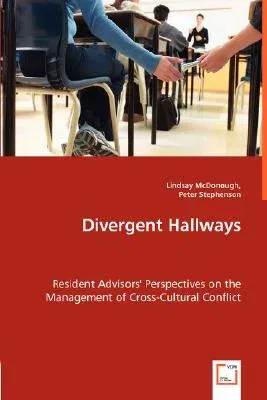Lindsay McDonough
(Author)Divergent Hallways - Resident Advisors' Perspectives on the Management of Cross-Cultural ConflictPaperback, 26 March 2008

Qty
1
Turbo
Ships in 2 - 3 days
In Stock
Free Delivery
Cash on Delivery
15 Days
Free Returns
Secure Checkout
Print Length
148 pages
Language
English
Publisher
VDM Verlag Dr. Mueller E.K.
Date Published
26 Mar 2008
ISBN-10
3836480379
ISBN-13
9783836480376
Description
Product Details
Book Format:
Paperback
Country of Origin:
US
Date Published:
26 March 2008
Dimensions:
22.86 x
15.24 x
0.81 cm
ISBN-10:
3836480379
ISBN-13:
9783836480376
Language:
English
Location:
Saarbrucken
Pages:
148
Publisher:
Weight:
208.65 gm

